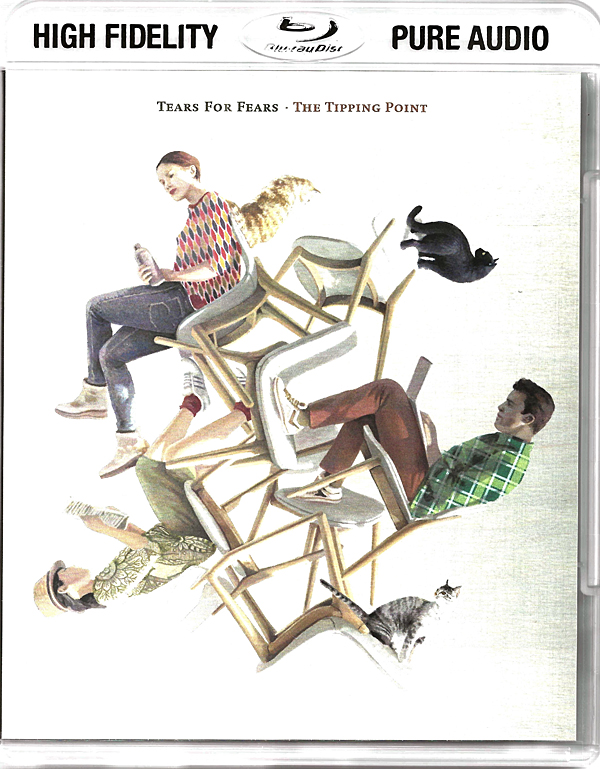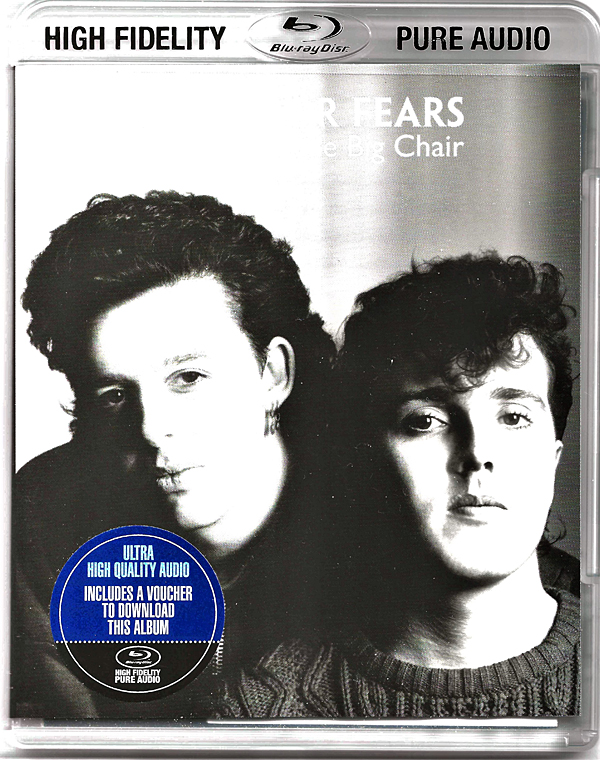Roland Orzabal on How Tears For Fears Elevated The Tipping Point in the Atmos Universe

It took Orzabal and Smith more than a few good years to finish The Tipping Point (BMG), which was released on February 25—semi-coincidentally the exact same date their biggest album, Songs From the Big Chair, was released on 37 years earlier, in 1985. Tipping is Tears For Fears' first full studio album in 18 years, following September 2004's then-seeming swan song, Everybody Loves a Happy Ending. From the stark beauty of "No Small Thing" to the guttural growl of "My Demons" to the hopeful lilt of "Please Be Happy," The Tipping Point is the culmination of four decades of a musical partnership that continues to be in fine sync. And it's also something fans new and old alike have clearly embraced, since The Tipping Point just debuted at No. 1 on Billboard's Top Album Sales chart.

Given TFF's penchant for densely layering their tracks, it's no surprise The Tipping Point boasts both a DTS-HD Master Audio 5.1 and a Dolby Atmos mix, both done by (who else?) Steven Wilson, the man who also handled the surround sound honors for a pair of the band's classic albums. (We'll discuss those further in a bit.) Although a 2,000-piece limited edition High Fidelity Pure Audio Blu-ray of The Tipping Point exclusive to the SDE Shop has already sold out (luckily, I pre-ordered mine!), thankfully, Wilson's Atmos mix is now also available in the Made for Spatial Audio portal on Apple Music. [Head on over to my current Spatial Audio File column to see my thoughts about the Atmos version of my favorite Tipping Point track, "Rivers of Mercy."]
The overall content of The Tipping Point has strong ties with TFF's March 1983 debut album The Hurting, as the albums essentially bookend each other. Or, as Orzabal explains it to me, "The way I would describe it is you might say The Hurting is a young man expressing his feelings and regret about a childhood in which he couldn't express his emotions—the kind of the blaming of the parents for all his woes. I would also say it's the embracing of primal therapy and primal scream to exorcise the demons of that childhood."
How does all that fit in with the new album? "I would say The Tipping Point is very similar, except for a major difference," Orzabal clarifies. "It's that the pain is the pain that comes with life, the pain that comes with love, and with loss. And, in many ways, to lose someone—or anything bad that happens to you as an adult—is as traumatic as your childhood. So, I think the two albums have a lot in common."

It's hard to argue with that kind of lifelong logic. To get further into all the finer points of Point, Orzabal, 61, Zoomed with me from his hideaway location in Maine to discuss why the new album simply soars in Atmos, why vintage TFF tracks like "Sowing the Seeds of Love" and "Shout" resonate even deeper in surround sound, and what the connection between "Mad World" and "My Way" is. The light on my horizon / Drop me in rivers of mercy, yeah. . .
Mike Mettler: The atmospheric mood and feel of The Tipping Point have to be part of your creative process, I would imagine. What I mean is, both you and Curt have to make sure you have the right sound design for the songs you're writing. That's a good bit of what you have in mind as the creators, right?
Roland Orzabal: Absolutely. There's no question about it! I mean, we don't particularly see ourselves as being engineers or brilliant at those kinds of things, but I guess we have a particular diligence and enthusiasm to sculpt sounds.
Obviously, we're listening in the studio, and we're listening to other people's records—and we're comparing them. We always have to brighten our stuff, all the time. We have to take out loads of the bottom end, and stuff like that. But once it gets mastered, and then you hear it on another format or you put the video up on YouTube, all of a sudden, you can hear every little detail—and that is so satisfying!
Sometimes, you can hear more of the detail on those devices, even on your phone. I remember when [the title track] "The Tipping Point" was released [in October 2021] and I was listening to it on my phone, I was thinking, "Oh my God, I can hear everything!" And that is just wonderful. It's wonderful.

Mettler: It is. Back in 2014, we were talking about the truly wonderful surround sound mix Steven Wilson had done for Songs From the Big Chair [for inclusion in November 2014's 4CD/2DVD Super Deluxe Edition box set]. One important point you made during that conversation was both you and Curt agreed you could get better separation and be able to hear all of that album's detail in the surround mix. I feel like I can also hear those things in the Atmos mix Steven did for The Tipping Point, just in terms of what I've been hearing with some of the orchestral pieces, the horn and percussive elements, and also when you guys choose to have your voices be more naked when you're singing. You two have such personal writing styles, and it really feels like you're speaking directly to the listener in these surround mixes.
Orzabal: Well, I'll take that as a compliment, then! I'm not sure if we did it on purpose, but certainly Track 1, "No Small Thing," with the acoustic guitar and the big, deep sort of Johnny Cash vocal (MM chuckles)—it's a song which is really about a one-to-one experience where the narrator is singing to his partner, being honest with her.
Also, I think "Rivers of Mercy" is another one where we have a clear narrative that is, hopefully, direct to the listener.
Mettler: Oh, I agree. You've said elsewhere "Rivers of Mercy" is a track that just stands out to you personally.
Orzabal: Yes. "Rivers of Mercy" is just that. In fact, Steve Wilson sent me an email after he had done the 5.1 and Atmos mixes, and he said he's just absolutely so in love with it. His note in the email was, "'Rivers of Mercy' is a future classic."
I'm getting a lot of feedback—especially from England, funnily enough—about "Rivers of Mercy." That seems to be the track people are picking up. Maybe that's just the way life is at the moment. Maybe people are just relating to it more.





























































